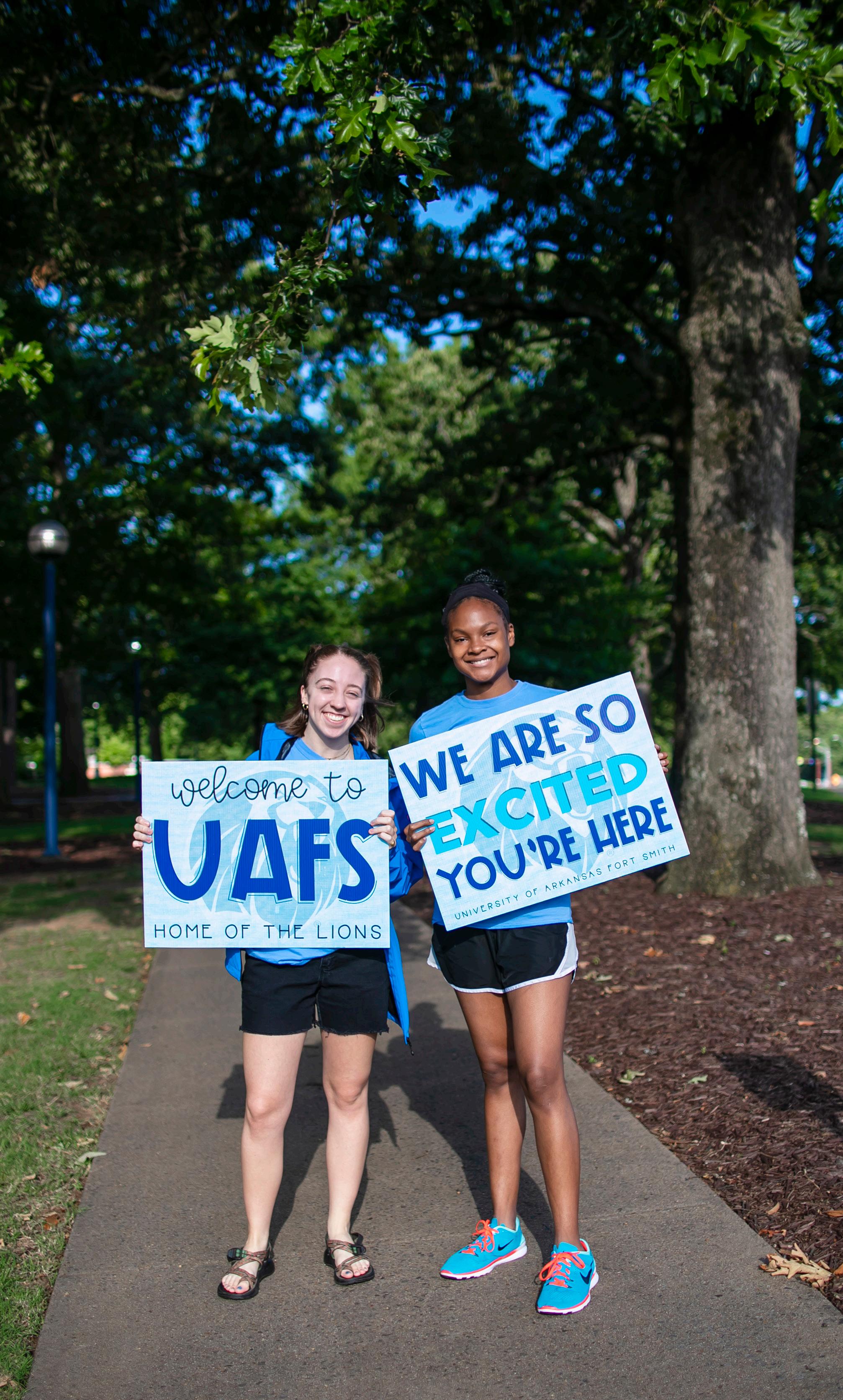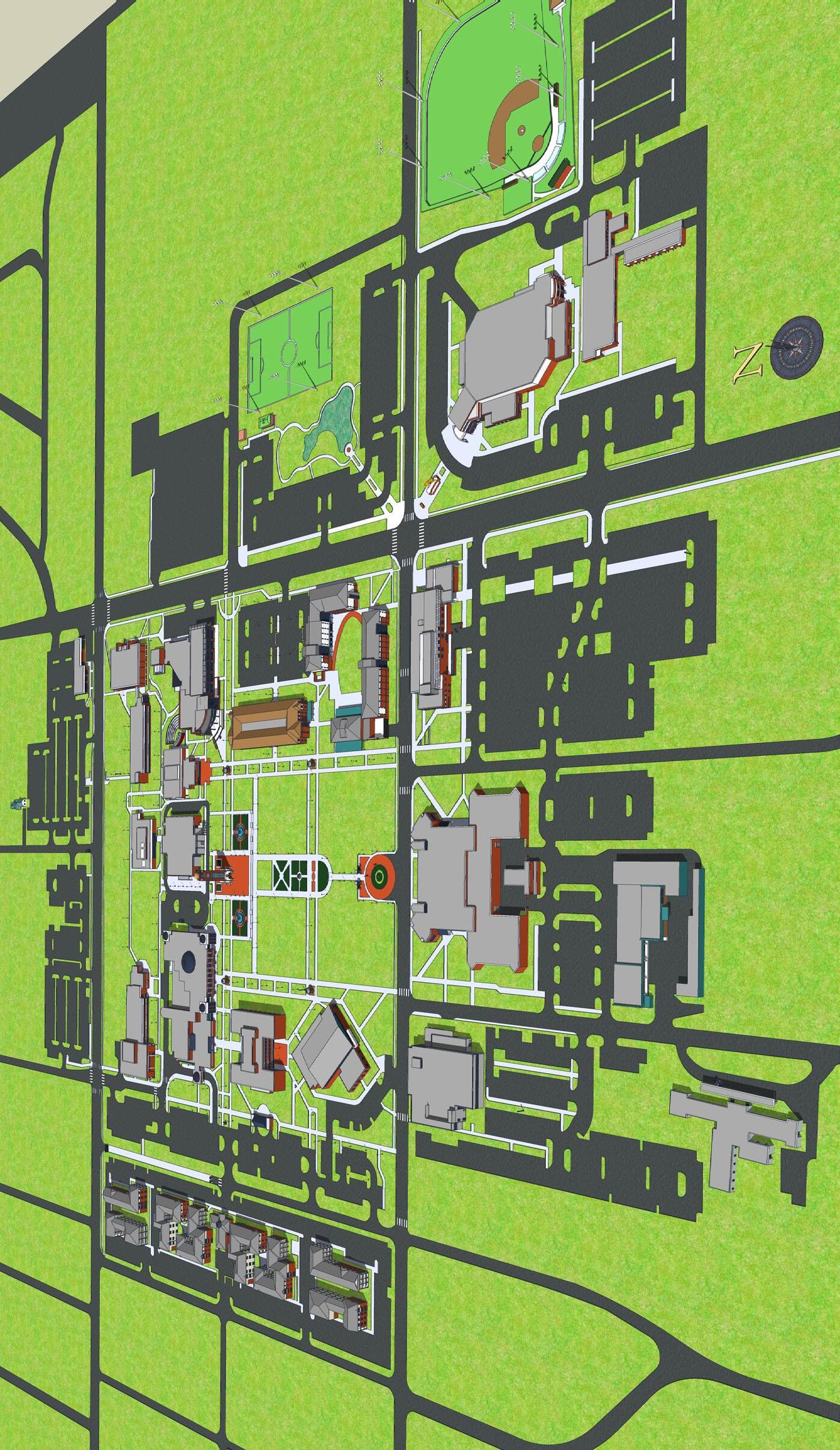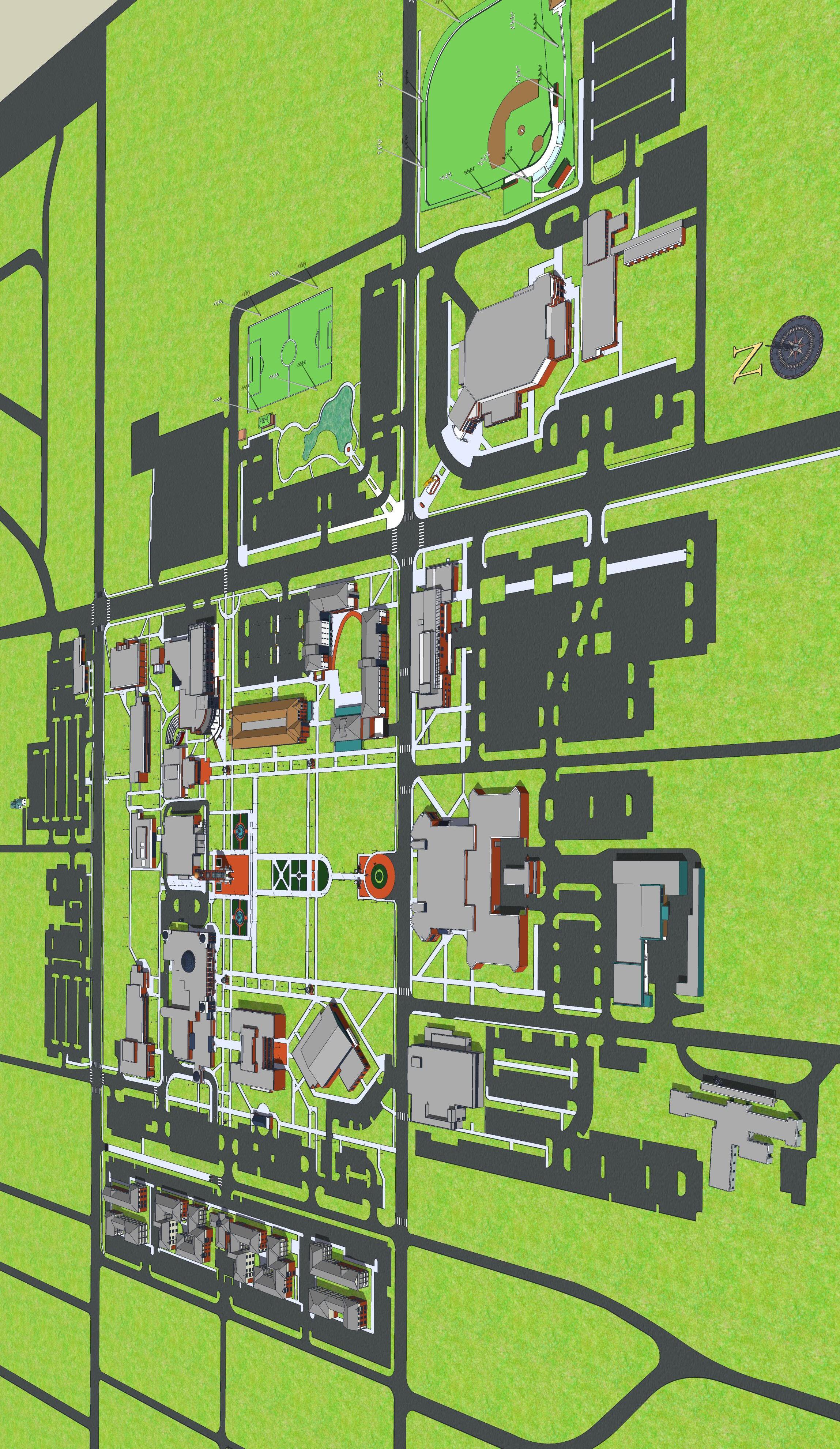




















































Administrative Staff
Amanda Seidenzahl Executive Director
Jeffery Tapp Program Coordinator
Jan Martinez Administrative Specialist
Instructional Staff
Jacob Silvers Jacob.Silvers@uafs.edu
Steve Stec Steve.Stec@uafs.edu
Randy Kent Randy.Kent@uafs.edu
James Moore James.Moore@uafs.edu
Kiyun Han Kiyun.Han@uafs.edu
Heather Friery Heather.Moore@uafs.edu
Amanda Standifer Amanda.Standifer@uafs.edu
Frankie Allred Frankie.Allred@uafs.edu
Gary Cameron Gary.Cameron@uafs.edu
Computer Integrated Machining
Computer Integrated Machining
Electronics
Electronics
Electronics
Health Science
Health Science
Health Science
Health Science
Jerry Mayer Jerry.Mayer@uafs.edu Health Science
Mark Standifer Mark.Standifer@uafs.edu
Jason Keyes Jason.Keyes@uafs.edu
Network Engineering Technology
Welding
Fall Classes Begin Aug. 18
Labor Day Holiday Sept. 1
Mid-Term Grades Due Oct. 15
Thanksgiving Holiday Nov. 24-28
Last Day of Fall Classes Dec. 4
Reading Day (no classes) Dec. 5
Final Exam Week Dec. 6-12
Spring Classes Begin Jan. 20
Midterm Grades Due March 18
Spring Break March 22-28
Faculty Appreciation/Undergraduate Symposium (no classes) April 10
Last Day of Spring Classes May 8
Final Exam Week May 9-15
The Western Arkansas Technical Center is an area secondary center located on the UAFS campus. The center was formed in 1998 through a collaborative effort by UAFS, the Western Arkansas Education Service Cooperative, and the Arkansas Department of Career Education. WATC provides area high school juniors and seniors with the unique opportunity to earn college credit while still in high school. The curriculum serves as an extension of the high school curriculum offering students hands-on experiences in a variety of career fields.
WATC serves high schools in a five-county area of Western Arkansas: Crawford, Franklin, Johnson, Logan, and Sebastian. Services are provided at no cost to the students. Books, tuition, and fees are provided through the center and funded by a
training fee paid by the local school districts and funds provided through the Arkansas Office of Skills Development.
WATC has three primary goals that define our purpose:
• Aid students in making an informed career choice. Students select a program based on their interests and aptitudes. Their experiences in the program help them to make informed career choices.
• Prepare students to enter the workforce upon high school graduation. The programs provided by WATC teach students marketable job skills leading to a professional certificate, a certificate of proficiency, technical certificate, associate degree, or bachelor’s degree from UAFS.
• Encourage students to continue their education after high school. WATC classes are credited for the student at both the high school and college levels. Students may finish their program with as many as 42 hours toward a degree or advanced certification program.
Morning WATC classes begin at 7:50 or 8:10 a.m., depending on the program. All morning classes end by 10:50 a.m. Afternoon WATC classes begin at 12:50 or 1:05 p.m. and end by 3:50 p.m. Students admitted into the LPN program can expect to have an extended schedule from 11 a.m. to 5:30 p.m.
UAFS and WATC provide equal employment, admission, and educational opportunities without regard to race, color, gender, religion, age, or learning or physical disability. UAFS and WATC do not discriminate on the basis of disability in admission, treatment, access to, or employment in any programs or
activities. It is the policy of UAFS and WATC that no student or staff member may sexually harass another. Any employee or student will be subject to disciplinary action for violation of this policy. The director of Human Resources is responsible for the university’s and WATC’s compliance with Section 504 of the Rehabilitation Act of 1973, the Americans with Disabilities Act of 1990, and Title VII of the Civil Rights Act of 1964. The vice chancellor for student affairs is responsible for compliance with Title IX of the Education Amendments of 1972.
Since 1998 WATC has delivered cutting-edge technical and career programming to high school students in 22 districts throughout the River Valley. In that time nearly 10,000 juniors and seniors have earned more than 100,000 college credit hours and gained the skills necessary to advance their careers.
WATC’s career-focused programming is designed in conjunction with some of the nation’s largest manufacturers and taught by experienced faculty from the University of Arkansas - Fort Smith. Students take a hands-on approach to learning using industry-leading technology at the UAFS campus and thanks to a partnership with Fort Smith Public Schools at the multi-million dollar Peak Innovation Center.
Through programming and industry exposure, students receive a direct connection to career opportunities in the region. Students who complete these courses can earn a competitive salary upon high school graduation and are prepared to thrive in college.
The Peak Innovation Center is a partnership between Fort Smith Public Schools and UAFS that delivers cutting-edge technical and
career education to high school students in 22 school districts throughout the River Valley. The culmination of education, community, business and industry efforts have forged a path towards a new educational model where students will be taught by industry leaders in real-world scenarios and on up-to-date, industry-specific equipment. The Peak Innovation Center is a place where career and college-bound students develop real-world skills and earn industry-specific certifications to create a future workforce that will drive success across the industry and beyond.
Students accepted into WATC have the option of selecting programs and coursework delivered on the UAFS Campus or at the Peak Innovation Center. These courses are delivered by UAFS faculty, designed to industry standards, and focused on the student’s career success.
• Welding
Programs Offered at Peak Innovation Center
• Certified Nursing Assistant
• Computer Integrated Machining
• Electronics Technology
• Emergency Medical Technician
• Licensed Practical Nursing
• Network Engineering Technology
WATC students are advised on academic and career matters individually and in groups during recruitment, admission, and registration processes. Students may also access individual advisement with WATC staff by request. Office hours are 7:30
a.m. to 4:30 p.m. Monday through Friday, except on designated university holidays. Assistance is available to senior WATC students to aid in the process of transitioning from high school/ WATC to UAFS.
The Academic Success Center, located on the second floor of the Vines Building, provides programs designed to meet individual needs not met through the general curriculum. Supplemental materials, free group tutoring, core skills instruction, motivational programs, and learning programs are all provided to encourage student success. For further information refer to the UAFS Student Handbook.
UAFS seeks to make every effort to offer equal educational opportunities for all students. To ensure a total university experience for students with disabilities, UAFS seeks to provide reasonable accommodations and services to students who are physically and/or learning disabled. The underlying philosophy of the program is to provide support, where possible, that will maximize each student’s opportunities for academic success.
Working in partnership with the student, the Student ADA Services coordinator will develop an individualized plan for services which may include academic advisement and accommodations in testing and instruction. A student with disabilities may present validation of the disability and request services by contacting their high school counselor to submit an accommodation request.
WATC students may access the services and activities offered by UAFS to their traditional college students. Please note that services in the Counseling Center and Powell Student Health Clinic on the UAFS campus are not available to concurrent students. Please refer to the UAFS Student Handbook for information regarding further services and activities in addition
to those listed in this handbook.
WATC will cancel classes for inclement weather when UAFS cancels classes or in collaboration with Fort Smith Public Schools in the event Peak Innovation Center closes. Should weather conditions necessitate class cancellation, students will be notified by announcements over local television and radio stations, the UAFS website and My.UAFS, Lions Alert, and the university switchboard. When UAFS classes are canceled, WATC classes are canceled.
Note: Even though WATC classes officially follow the UAFS closing decisions, we expect and encourage students and their parents to use their own judgment in making the decision about whether to drive or be transported on local roads during inclement weather.
Transportation
Transportation services and regulations vary from school district to school district. For information regarding availability of bus transportation, students should contact their local high school counselor or the WATC Office.
UAFS Lions ID cards will be provided for all WATC students during the orientation process. There is no charge for the ID card, but a replacement card costs $20. ID cards are issued through the Registrar’s Office. The Lions ID card serves as a Boreham Library checkout card, allows Recreation and Wellness Center access, and provides free admission to regular season UAFS athletic, social, cultural, and recreational events.
Appropriate use of the university’s electronic information system is the responsibility of all members of the university community, including students. There is a link to the Electronic Communications Policy and the associated Information Security Procedures at the bottom of each page of the
UAFS website, uafs.edu.
By accepting and using UAFS computer login codes and passwords, students are agreeing that they understand and will abide by the Electronic Communications Policy and Information Security Procedures.
Regular attendance is mandatory for success in WATC programs. Attendance is recorded daily for WATC students and reported to the local high school.
Students are allowed a maximum of 10 absences (or five absences in an eight-week course) per semester. These absences do include official school business and appointments. Any student with more than 10 absences may be dropped from WATC for nonattendance. If a student has extenuating circumstances, please contact the WATC director. A student is considered tardy if arriving late in the classroom after 10 mintues. Tardies and early checkouts are counted as half-day absences.
When absent, students are responsible for contacting their instructor to obtain missed assignments and/or exams and are subject to the policy of the instructor. If an instructor must miss a class, the WATC Office will work with the academic department to ensure another instructor is present.
Note: Mandatory state exams are exempt from the absence policy and students will be allowed to make up any missed assignments.
While we strongly encourage students and parents to schedule important medical appointments and other meetings after school hours, we understand this is not always possible. For a student to be dismissed, the WATC Office must receive verbal or written confirmation from a parent or legal guardian. This policy applies to all students regardless of age.
Students will not be allowed to check out of their WATC classes for the express purpose of going to work. Education takes priority over any after-school employment. Students are responsible for communicating with their employers concerning their availability.
The course syllabus offers both a broad view of each course’s goals and content as well as semester-specific details—such as required readings, faculty office hours, assignments, deadlines, and grading criteria. Faculty are responsible for providing students with a course syllabus at the beginning of each semester. Typically, this will be located in Blackboard for all online classes and most in-person classes. Be sure to READ your syllabus and continually refer back to it for course information.
All university students are provided UAFS email access. University faculty will ONLY respond to questions/concerns via official UAFS email. Students will receive an email message to their primary home email address entered on the application from UAFS Information Technology Services. This email will provide students with information on how to access their university Microsoft email account. Students are expected to check their university email every 24 hours.
UAFS has implemented a multi-factor authentication process for all students and faculty/staff to securely access their university accounts and information. This process is critical to safeguard student data. All students, including concurrent, will need access to a mobile device to authenticate and access any university system (i.e. Email, Blackboard, Workday Student, course materials, etc. Students without access to a mobile device will need to purchase a fob from the university. Please contact Early College Programs staff or IT for assistance in this process.
Returning Students: Students that completed concurrent courses previously will need to set up their two-factor authentication access with both an alternative email address and phone number (if not already completed). Most students utilize the Microsoft Authenticator app to authenticate their UAFS accounts. If you did not set up your two-factor authentication, you will need to do so the first week of class. Please contact program staff or Tech Support for assistance. Again, students will not be able to access any university system (I.e. Email, Blackboard, Workday Student, etc.) without setting up a twofactor authentication. Returning students will also need to reset their password using 14+ characters before accessing the system. See password guidelines at the end of the document.
New Students: New students for 2025-2026 will have their alternative email and phone number imported for them in the multi-factor authentication process. New students will still need to download and set up the Microsoft Authenticator app. Students will need to follow the university password guidelines at the end of the document.
Note: Additional instructions are available in a student’s primary home email from TechSupport@uafs.edu. Refer to the QR codes at the end of the document as well.
Blackboard is the official learning management system for UAFS. All students in online coursework will use this platform to access course materials and submit assignments. It is critical that students check Blackboard to refer back to due dates and submit all required course materials.
Workday Student
Workday Student is the UAFS student information system. Concurrent students will be able to access their personal information, class schedule, mid-term and final grades, and unofficial transcript. Additionally, students completing associate degrees will be able to see their academic plan of classes
for each semester and monitor their progress toward degree completion within this system.
Brainfuse is a learning platform which provides students with academic support, study tools, and online tutoring. Students can access live homework help from Brainfuse-certified tutors in a variety of college subjects. Tutors and students communicate in real-time through the Brainfuse Online Classroom. Whatever you type, draw, or share on the screen, the tutor sees, and vice versa. All sessions are recorded for later review. Access to Brainfuse is available to all concurrent students through Blackboard.
WATC students are enrolled in college courses and are required to meet the same standards in their coursework as traditional college students. Each instructor is in charge of class activity, course requirements, and grading procedures within the context of the classes they are assigned to teach. Instructors are responsible for all classroom expectations for students.
Textbooks and required classroom supplies are provided to students by WATC. Unless the books and supplies are consumables, they are to be returned by the students at the end of the semester. Students are responsible for the replacement cost of lost or damaged books and supplies.
Classes taken through WATC are UAFS courses. Earned grades and credit hours are recorded on UAFS and local high school transcripts. Consult with your local high school counselor for details concerning the credit awarded for each WATC class.
Students receive schedule assignments at the beginning of each semester. A student may make a request for a change of schedule during the first two days of a semester. All requests
must be submitted to the WATC administration office. Approval is dependent upon program and course availability. Only requests made for legitimate reasons will be approved.
Following the end of the eighth week of each regular semester, midterm grades are sent to the participating high schools. Final grades are reported in the same manner at the end of the semester. Students may access their grades via Workday Student.
WATC classes are UAFS classes and use the following system of grading:
A Excellent 4 Quality Points
B Good 3 Quality Points
C Average
D Passing
F Failing
AU Audit
W Withdraw
IP In-Progress
Quality Points
Quality Point
Quality Points
Quality Points
Quality Points
Quality Points
Find the total grade points earned by multiplying the value of each grade times the number of credit hours for each course, using the table above for quality points. For example, four-credit hours of A is 4 x 4 = 16 and three-credit hours of B is 3 x 3 = 9; the total grade points earned is 25.
Add all credit hours attempted, including those for which you earned an F. For example, one four-credit hour course and one three-credit hour course = 7.
Now, divide the grade points earned by the total credit hours. For example, 25÷7 = 3.57 GPA.
WATC students will be placed on academic restriction if, at the close of the fall or spring semester, their cumulative GPA falls below 2.00. Students will remain on academic restriction as long as their semester GPA is a 2.00 or higher and their cumulative GPA is less than 2.00.
WATC students who have been placed on academic restriction will return to their high school.
WARNING: Students who are not in good academic standing with the university run the risk of being denied financial aid and will have limited enrollment opportunities as incoming freshmen .
For more information see the academic standards section of the UAFS catalog.
Enrollment in a course with a prerequisite requires a grade of C or better in the prerequisite course(s) before enrolling in the advanced course.
Academic dishonesty is described as using unauthorized materials, information, or study aids in any academic exercise, as well as plagiarism, forgery, falsification of records, unauthorized possession of examinations, any and all other actions that may improperly affect the evaluation of a student’s academic performance or achievement, and the assistance of others in any such act.
An instructor who has proof that a student is guilty of academic dishonesty may take appropriate action up to and including assigning the student a grade of F for the course and suspending the student from the class. A description of the incident and the action taken will be placed in the student’s file in the Registrar’s Office and reported to the appropriate dean.
Withdrawal from WATC is only allowed with the consent of the student’s high school and the executive director for Early
College Programs. All withdrawals must be processed through the WATC Office. Failure to attend class does not constitute withdrawal. The following policies apply to withdrawal:
1. Withdrawals through the 11th day of the semester are not recorded on the student’s transcript.
2. Students withdrawing from a regular 16-week class after the 11th day and by the posted university withdrawal date receive a W on their transcript.
3. No withdrawals can be made after the university withdrawal date.
Students must check with their local school district for local policies pertaining to withdrawal from WATC classes or programs.
Note: Local school districts are billed training fees according to their student participation . No training fees are charged for students who withdraw prior to the 11th day of classes .
The rights of students, faculty, staff, and any other person on the university campus must be honored. Participation in acts that are degrading, injurious, or that hold another against his or her will, written or oral threats, and the physical and verbal abuse of another person are specifically prohibited. Individuals who intentionally and significantly interfere with the teaching and learning process may be sent back to their home high school. Instructors have the right to set expectations for classroom behavior. Students who interfere with the teaching and learning process may be asked to leave the class and will be subject to discipline.
In-School Suspension: A WATC student assigned to in-school suspension (ISS) at their local high school must abide by the high school’s policy concerning ISS. Students who are required to remain in ISS for the entire day and are absent from WATC
classes as a result of ISS will need to contact their instructor for any missed work in WATC classes.
Out-of-School Suspension: A WATC student assigned to out-ofschool suspension at their local high school must abide by the high school’s policy concerning suspension. If the policy allows attendance to WATC classes, the student may attend without penalty if the student is not suspended for an infraction that poses a danger to other students. If the policy does not allow attendance to WATC classes, students will need to contact their instructor for missed work in the class. If the suspension is assigned due to behavior resulting in recommendation for expulsion and pending an expulsion hearing, students will not be allowed to attend WATC classes during the suspension.
Expulsion: Students expelled from their local high school are automatically expelled from WATC.
All students must purchase a parking permit to park on the UAFS campus. Vehicles must be registered online at uafs.edu/upd/parking.
Failure to comply with UAFS parking regulations will result in a parking fine/ticket. Students who drive private transportation to campus are required to obey all UAFS traffic and parking regulations. Students are not allowed to leave campus during designated class time except with specific permission from their instructor. (Health instructors may permit students to leave campus for clinical assignments.) Students are not to leave campus during break time. Please visit the UAFS website for a list of all parking policies. Parking permits are not required at the Peak Innovation Center. However, appropriate driving behavior is expected at all times.
Possessing, using, or storing firearms, explosives (including firecrackers), weapons, or dangerous chemicals on university property or in the course of any university-sponsored activity is prohibited and will result in immediate dismissal from WATC. Stun guns and tasers are not allowed.
UAFS recognizes its responsibility to provide a healthy environment within which students may learn and prepare themselves to be fully functioning and productive individuals. The abuse of alcohol and other drugs is considered to be detrimental to the attainment of the educational mission of this institution. UAFS has implemented a policy regarding substance abuse, which may be found in its entirety in the UAFS Student Handbook. Any student found in violation of this policy shall be subject to immediate disciplinary action, which may include dismissal from WATC and UAFS. In addition, specific degree programs may have additional policies related to prevention and management of substance abuse.
Students are expected to maintain safe working conditions in all WATC program labs. The Welding Technology program has additional expectations to ensure students are maintaining a safe and productive environment. Instructors and program staff expect all WATC students to adhere to the guidelines below while also preparing to meet employer expectations in a work environment. All students will be expected to meet with their instructor confirm understanding and agreement to comply with the following lab safety and usage guidelines before they are allowed to work in the lab. A full list will be provided to the student upon entry into the program. Guidelines include:
• Do not operate any of the equipment unless you have been trained and authorized to do so.
• No horseplay will be tolerated.
• Always wear safety glasses when working.
• Use ear protection, gloves, and welding hoods when in the welding technology lab.
• Wear suitable clothing when working in the welding technology lab (100% cotton shirts with long sleeves, long denim or other heavy-duty cotton pants, and closed toe leather shoes).
• No jewelry allowed. Long hair must be secured.
• Always keep hands or loose clothing away from machines during operation.
• Inform your instructor or supervisor of any safety issues or equipment problems.
• Be familiar with the location of all safety equipment.
• Never work alone or allow other students to work alone in any lab at any time.
Violations of safety rules will result in consequences listed below:
1. First violation will be a documented warning through the instructor and WATC office. Warnings will be sent to the student’s school district and parent/guardian.
2. Second violation will result in suspension from lab for three days.
3. Third violation will result in removal from course (automatic F).
In order to establish a healthier and more beautiful learning environment, the use of any tobacco product is prohibited on the grounds of UAFS. The tobacco-free environment includes all university property. Electronic cigarettes are also prohibited on campus.
Corrective actions shall include:
1. verbal warning
2. written warning
3. administrative sanctions including suspension from the university.
Normal disciplinary action due process procedures will be used should an appeal be filed.
Destruction, damage, unauthorized possession, or misuse of WATC/ UAFS or FSPS property, including but not limited to keys, library materials, computers, computer systems, and laboratory supplies, is prohibited. This regulation covers the unauthorized appropriation or “borrowing” of common property for personal use.
Students are expected to adhere to instructor policies regarding
cell phone use. Cell phone usage that is inappropriate or disruptive to the learning process will be referred to the director’s office.
UAFS students are expected to dress in a manner appropriate for responsible adults in an educational and workforce setting. See-through clothing and clothing that is revealing are considered inappropriate. Wearing apparel that displays any obscene writing, description, photograph, or depiction is prohibited. Any student found to be in violation will be sent to the director’s office for disciplinary action.
UAFS has adopted a policy of zero tolerance with respect to unlawful harassment/discrimination and does not/will not tolerate unlawful harassment/discrimination of any student, employee, or individual who is a part of the campus community. For students this includes harassment or discrimination by a university employee, fellow students, or any third-party individual on the institution’s premises, the location of any university-sponsored activity, or any other site used for the performance of studies for UAFS.
The university will not tolerate physical or verbal conduct that acts to create a hostile work or study environment. Behavior that is offensive, intimidating, or abusive in nature, especially behavior that relates to such things as an individual’s race, color, sex, religion, or national origin, is prohibited. For more information and a list of examples of the types of conduct expressly prohibited by this policy, please see the current UAFS Student Code of Conduct.
Students who do not follow the rules and regulations outlined in this handbook and the UAFS Student Handbook are subject to disciplinary action. Disciplinary action will be determined according to the severity of the offense as determined by the WATC director or their designee. The student’s parent/
guardian and high school officials will be informed of problematic behavior.
Students referred to the director’s office for disciplinary problems will be placed on disciplinary contract . Persistent or severe disciplinary problems may result in the student being suspended for one to five days and/or dismissed from WATC programs.
To guarantee that the rights of UAFS students will be protected, the following procedure has been developed:
The initial disciplinary action to be taken against a student will be determined by the director of WATC. The recipient of disciplinary action has the right to appeal to the associate provost. An appeal must be submitted in writing within three days to the office of the director of WATC. The associate provost may uphold, reduce, or reverse the decision of the director of WATC. Both the student and the director of WATC have the right to appeal the associate provost’s decision to the provost. The provost may uphold, reduce, or reverse the decision of the director of WATC and the associate provost.
Note: WATC students are also held accountable for guidelines and information found in the current UAFS Student Handbook and Code of Conduct.
Concurrent students have the same right to academic grievances as university students. A student with a grievance concerning a faculty member, a method of instruction, or dismissal from a program should follow the informal and formal grievance procedures described in the respective program documents, if applicable. Early College Program staff can assist students with this process.
The Family Educational Rights and Privacy Act of 1974 (FERPA), as amended (also referred to as the Buckley Amendment), is a federal law regarding the privacy of student records and the obligations of the institution, primarily in the areas of release of records and the access provided to these records. Any educational institution that receives funds under any program administered by the U.S. Department of Education is bound by FERPA requirements.
Once a student is registered in postsecondary coursework, all FERPA rights transfer to the student. Please note that while the participation agreement form in the application provides program staff the ability to contact a parent/guardian, staff will always initiate the contact first with the student.
The University of Arkansas - Fort Smith is committed to providing an environment that emphasizes the dignity and worth of every member of its community and that is free from harassment and discrimination based upon race, color, religion, national origin, service in the uniformed services (as defined in state and federal law), veteran status, sex, age, pregnancy, sexual orientation, gender identity, physical or mental disability, or genetic information. Such an environment is necessary for healthy learning, working, and living atmosphere. Accordingly, all acts of discrimination, harassment, retaliation, and sexual misconduct as defined by this policy are prohibited.
Concurrent students are also protected by Title IX policies. Refer to the university website for additional information on Title IX or information on how to report Title IX policy violations. Early College Program staff can also help guide you through this process.



